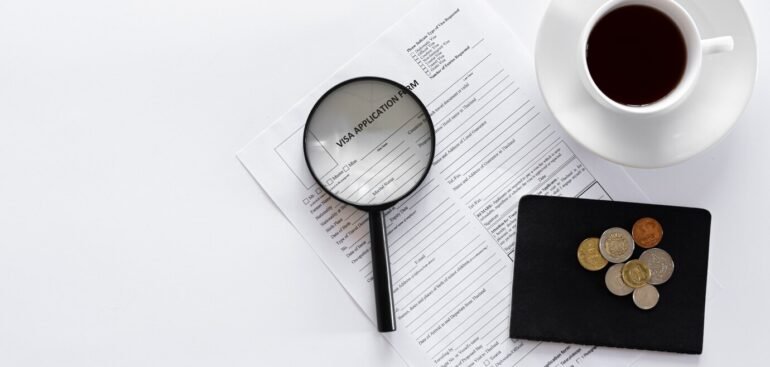Fraudulent activities can cause severe financial damage to businesses of all sizes. From embezzlement to financial misstatements, corporate fraud is a persistent issue that many companies face today. In such an environment, the role of forensic accounting audits has become increasingly crucial in detecting and preventing fraud, ensuring business integrity, and safeguarding assets. Forensic accounting audits go beyond traditional financial auditing, delving deeper into financial records to uncover hidden anomalies and fraudulent activities.
Forensic accounting combines investigative skills with accounting expertise, making it a powerful tool in fraud detection and prevention. When a company suspects financial misconduct or fraud, forensic accountants are employed to thoroughly examine records, transactions, and financial statements. They look for discrepancies, red flags, and unusual activities that could indicate fraudulent behavior. With the increasing sophistication of fraud schemes, the need for skilled forensic accountants has never been more essential.
In this blog, we will explore the significance of forensic accounting audits, how they help uncover fraud, and how Fraud Stoppers can be a key player in stopping fraud before it escalates. We will also highlight expert insights on how forensic accounting audits can strengthen financial systems and protect businesses from financial risks. Let’s dive into the details of this invaluable service and why your business needs it.
The Importance of Forensic Accounting Audits in Fraud Detection
Forensic accounting audits are vital in detecting financial fraud and maintaining a transparent financial environment within businesses. Traditional audits primarily focus on ensuring that financial statements are accurate and comply with accounting standards. While this is crucial, forensic accounting goes a step further by investigating the “how” and “why” behind financial discrepancies.
Forensic accountants use advanced techniques to analyze financial data, looking for signs of financial manipulation, embezzlement, and fraudulent activities. These specialists are trained to identify unusual patterns in financial records, such as fictitious transactions, inflated expenses, or false reporting. Their skills allow them to examine complex financial documents and transactions that might otherwise go unnoticed by regular auditors.
The goal of forensic accounting audits is not just to find fraud but to gather evidence that can be used in legal proceedings. Forensic accountants are often called as expert witnesses in court to present their findings, making their role critical in both fraud detection and litigation.
According to industry expert and forensic accountant, John Davis, “The role of forensic accounting audits has evolved. Today, forensic accountants must be more than just number crunchers; they need to be investigators, equipped with the skills to unravel complex financial crimes. In many cases, businesses only realize the extent of fraud when it’s too late. A proactive forensic audit is essential to catch fraud before it spirals out of control.”
Forensic accounting audits are beneficial not only in fraud detection but also in prevention. With the help of forensic accountants, businesses can implement stronger internal controls, reduce financial risks, and ensure compliance with regulatory standards. This proactive approach can save companies from significant financial losses and reputational damage.
How Forensic Accounting Audits Uncover Fraud
Forensic accounting audits are designed to detect fraudulent activities by examining financial records in detail. These audits often involve the use of advanced investigative techniques, such as data mining, financial modeling, and tracing transactions across multiple accounts. Let’s look at how forensic accounting audits uncover fraud and the process behind these investigations.
- Identifying Red Flags:Forensic accountants are trained to spot red flags that may indicate fraudulent behavior. These red flags include irregularities in financial statements, unusual transaction patterns, and discrepancies in account balances. For example, large cash withdrawals or significant discrepancies between income and expenses could suggest fraudulent activity.
- Tracing Suspicious Transactions:Forensic accountants follow the money trail to trace suspicious transactions back to their source. This involves looking at account transfers, bank statements, and business expenses to determine whether funds were misappropriated or diverted for personal use.
- Analyzing Financial Data:Forensic accountants use specialized software to analyze vast amounts of financial data. This data analysis can help detect patterns of fraudulent behavior, such as overstatement of assets or understatement of liabilities. Forensic accountants also use forensic technology to recover deleted or altered financial records.
- Conducting Interviews and Gathering Evidence:In addition to analyzing financial records, forensic accountants may conduct interviews with employees, vendors, and other stakeholders to gather additional evidence of fraud. They may also review contracts, emails, and other documents to uncover fraudulent schemes.
- Collaborating with Legal Experts:Once forensic accountants uncover evidence of fraud, they work closely with legal experts to ensure that the findings are presented in a way that can be used in legal proceedings. This collaboration is crucial when companies need to take legal action against fraudsters or recover stolen funds.
Fraud Stoppers play an essential role in forensic accounting audits. Fraud Stoppers are professionals who specialize in fraud prevention and detection. They work alongside forensic accountants to identify weaknesses in financial systems and implement measures to prevent fraud from occurring. With their expertise, businesses can reduce the likelihood of fraud and strengthen their internal controls.
Fraud Stoppers: The Key to Preventing Fraud Before It Starts
Fraud prevention is as important as detection when it comes to forensic accounting. Fraud Stoppers play a crucial role in identifying vulnerabilities within a company’s financial systems and implementing strategies to safeguard against fraud. By working proactively, Fraud Stoppers help businesses reduce the risk of financial crimes before they escalate.
Fraud Stoppers focus on strengthening internal controls, improving financial transparency, and training employees to recognize and report fraudulent activities. Their role extends beyond simply detecting fraud—they help create a culture of honesty and integrity within an organization, making it less likely that fraud will occur in the first place.
Here are some of the strategies that Fraud Stoppers use to prevent fraud:
- Internal Controls and Procedures:One of the most effective ways to prevent fraud is to implement strong internal controls. Fraud Stoppers work with businesses to develop procedures that ensure financial transactions are properly recorded and authorized. This may include segregation of duties, regular reconciliations, and approval processes for large transactions.
- Employee Training and Awareness:Fraud Stoppers often conduct training sessions to educate employees on recognizing signs of fraud and how to report suspicious activities. A well-informed workforce is a critical line of defense against fraud.
- Regular Audits and Reviews:Fraud Stoppers recommend conducting regular internal audits to review financial records and ensure compliance with company policies. These audits help identify potential issues before they become major problems.
- Use of Technology and Analytics:Fraud Stoppers often use advanced data analytics tools to monitor financial transactions in real-time. These tools can flag unusual activities, allowing businesses to investigate potential fraud before it becomes widespread.
- Whistleblower Programs:To encourage employees to report fraudulent activities without fear of retaliation, Fraud Stoppers implement whistleblower programs. These programs provide a safe and anonymous way for employees to report suspicious behavior.
Expert insights from Lisa Thompson, a Certified Fraud Examiner, highlight the importance of fraud prevention: “Fraud prevention is not just about catching fraud after it happens; it’s about setting up systems and controls that make it harder for fraud to occur in the first place. The role of Fraud Stoppers is crucial in this regard, as they help businesses design and implement strategies that reduce the risk of financial crimes.”
By working with Fraud Stoppers, businesses can significantly lower the chances of becoming victims of fraud, ensuring long-term financial stability and growth.
Forensic Accounting Audits: A Legal and Financial Necessity
Forensic accounting audits are not only valuable for detecting and preventing fraud; they also play a critical role in legal and financial disputes. Whether it’s a case of embezzlement, financial misreporting, or contractual disputes, forensic accounting can provide crucial evidence to support legal proceedings.
When companies are involved in litigation related to fraud or financial misconduct, forensic accountants are often called upon to provide expert testimony in court. Their ability to present complex financial data in a clear and understandable manner makes them invaluable in legal cases. Forensic accountants can also assist in settlement negotiations by helping parties understand the financial impact of fraud and providing insights into the potential recovery of stolen assets.
Moreover, forensic accounting audits are essential in mergers and acquisitions (M&A) due diligence. Before acquiring a company, potential buyers often request forensic audits to ensure the target company’s financial records are accurate and free of fraud. A forensic accounting audit helps protect investors by providing a comprehensive review of the company’s financial health.
As financial crimes continue to evolve, forensic accounting audits remain one of the most effective tools for detecting fraud and ensuring business integrity. With the support of forensic accountants and Fraud Stoppers, companies can stay ahead of fraudsters and safeguard their assets.
Conclusion: Protect Your Business with Forensic Accounting Audits and Fraud Stoppers
In today’s complex financial landscape, the importance of forensic accounting audits cannot be overstated. These audits provide businesses with the necessary tools to detect fraud, protect assets, and ensure compliance with financial regulations. By working with experienced forensic accountants and Fraud Stoppers, businesses can take a proactive approach to fraud prevention, reducing the risk of financial losses and reputational damage.
Whether you are dealing with suspected fraud or want to strengthen your internal controls, forensic accounting audits offer invaluable insights and solutions. Fraud Stoppers play a key role in ensuring that your financial systems are robust, transparent, and resistant to fraud.
To learn more about how forensic accounting audits and Fraud Stoppers can benefit your business, contact us today at (877)-399-2995 or visit Mortgage Audits Online. Protect your business and take control of your financial future with expert forensic accounting services.







